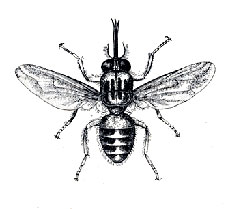 African trypanosomiasis is a devastating disease, both for humans and animals. Over the last hundred years huge efforts have been made to control it.
African trypanosomiasis is a devastating disease, both for humans and animals. Over the last hundred years huge efforts have been made to control it.
A working paper by Ian Scoones looks at the scientific and policy debates surrounding control of the disease and its vector, the tsetse fly, in Eastern and Southern Africa. The paper investigates the changing institutional politics related to trypanosomiasis control. The range of control methods includes bush clearance, game culling, baits and traps, sterile insect release, animal breeding, drugs and vaccines, among others.
The focus and controversy around control methods has meant alternative perspectives, including those of livestock keepers living with the disease, have been overlooked. The paper discusses the case for an integrated ‘One Health’ approach, one that links ecological and disease dynamics with socio-economic conditions.
This paper is published as part of the Dynamic Drivers of Disease in Africa Consortium, which investigates the connections between a number of human-to-animal (zoonotic) diseases and the environment in Africa.
The Politics of Trypanosomiasis Control in Africa
STEPS Working Paper 57
by Ian Scoones
Image: Tsetsemeyers1880.jpg from Wikimedia Commons (public domain)